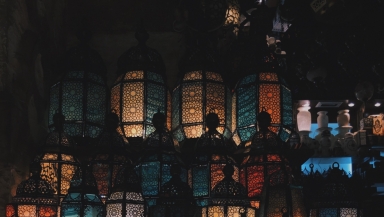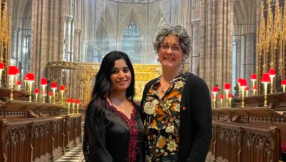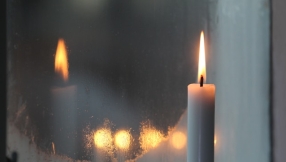
For Muslims around the world, Ramadan is a time of togetherness. However, for many Christians around the world, it can be a time of anxiety, loneliness, or even danger – especially if they are converts from Islam.
The holy month of Ramadan runs until Sunday 1 May. Adult Muslims (with a few exceptions) are expected to fast between sunrise and sunset, ending the day with the evening feast or Iftar. It's a time for prayer and solemn reflection.
It's also a time of increased pressure for Christians in many Muslim-dominated areas in Africa, Asia and the Middle East. A wave of Islamist radicalism across the world has eroded much of the peaceful coexistence that traditionally existed between Muslims and Christians.
Christians, especially converts, feel increasingly ostracised during the month of Ramadan – so much so, that many do not even eat in public and keep an even lower profile than usual.
"Many Christians struggle during Ramadan from an increased inferiority complex," says Mary*, a field worker for the charity Open Doors, which supports persecuted Christians.
"They spend most of their time in secluded religious activities to minimise trouble. Less time is given to service to others."
There are several challenges they face during Ramadan:
- In some regions such as Afghanistan, Somalia and Libya, a believer's faith leaves them in physical danger all year round. They can be attacked, abused, denied food, beaten and sometimes killed. However Ramadan presents fresh challenges.
Many converts are put under immense pressure to recite the shahada (a confession that states: "I bear witness that there is no deity but Allah, and I bear witness that Muhammad is the messenger of Allah."). If they do not recite the confession, it would be clear: they have become a "Kafir" or "Infidel".
- Those who break under this extreme pressure struggle with guilt for having denied their faith. If there isn't somebody who can help them overcome this guilt and help them find restoration – like Jesus with Peter – they continue to struggle, hindering their Christian growth.
- There is a strong emphasis on giving during Ramadan. This creates resources for those in need, in the local community and elsewhere. A person who has come to Christ no longer has access to this charity in times of need. This is made worse when the Muslim community boycott any business run by a convert in an attempt to entice them back into Islam to survive.
- When Muslims break their fast together, it is a time that community ties are strengthened. Sadly, many Christian converts don't find this kind of fellowship in their churches. The Muslim community is all about ummah (the oneness of all true Muslims). Sadly, many churches in these same regions are far more individualistic. So, during holy days in Islam, they are lonely, and during festivals such as Easter they can also feel alone.
There is another reason why Easter can be a source of fear and anxiety for Christians in many parts of the world.
The awful suffering caused by the Easter Sunday bombings in Sri Lanka reflects the heightened risk facing millions of Christians across the world during Holy Week.
Last year, suicide bombers attacked worshippers on their way home from a Palm Sunday service in Indonesia. There have also been Easter attacks in Pakistan in 2016, in Egypt on Palm Sunday in 2017, and, going further back, the terrible attacks of 2012 in north-eastern Nigeria.
"In the West, we don't understand how brave it is for many Christians to publicly celebrate a religious festival like Christmas or Easter," says Dr David Landrum, Head of Advocacy for Open Doors UK and Ireland.
"Indeed, in more and more regions, it is a huge risk to meet to worship at any time of year.
"However, we especially need to pray that God provides strength, courage and comfort to His children who may face increased targeting and loneliness during Ramadan and Easter."
Open Doors works with Muslim-born Christian converts around the world to help them deal with the pressure and loneliness of this season. In some places they present special programs to minimize the isolation they feel.
Where appropriate, they encourage believers to share the gospel carefully and wisely with others in their community.
Ramadan is a time of heightened spiritual awareness among their Muslim friends and family members, and along with many pressures, there is also openness and spiritual hunger.
Open Doors offers support to, and speaks up for, Christians around the world who are discriminated against, or persecuted for their faith.
*Name has been changed for security reasons.













